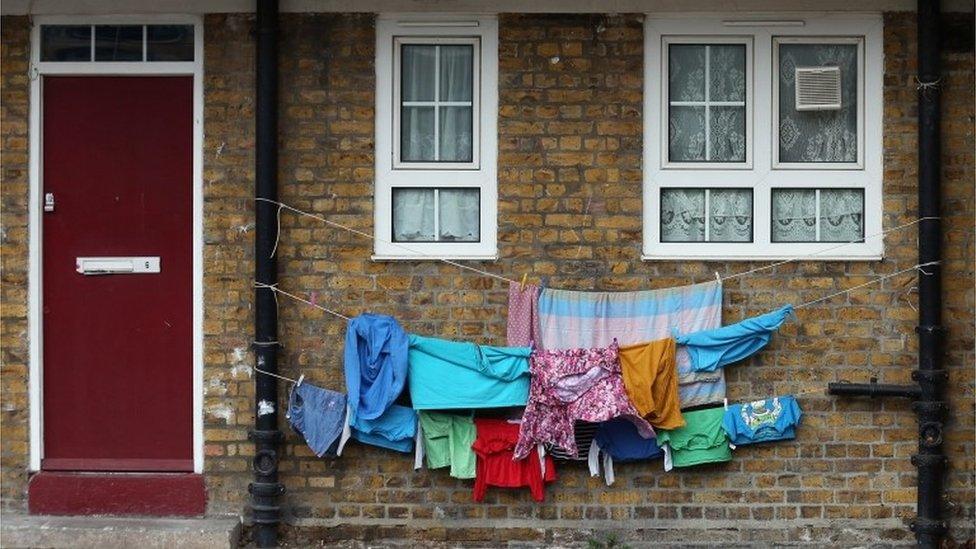There is another big issue with this Budget – the continuing incomes squeeze
- Published
- comments

Theresa May has made supporting the "just about managing" the core of her political project - those who work hard but do not feel better off.
The scale of her task and that of the chancellor is now becoming clear.
The Resolution Foundation analysis of the Office for Budget Responsibility's economic outlook says that average earnings will only return to levels seen in 2007 - before the financial crisis - by the end of 2022.
And that "balancing the books" - cutting the deficit to zero - may not be achieved until 2025.
Philip Hammond will find the analysis difficult to dismiss, he approvingly name-checked the think tank in his Budget speech yesterday.
On the big controversy of the day - the tax rise for the self-employed - the Resolution Foundation supports the government.
"The chancellor is right to begin tackling the unfair and expensive tax advantages enjoyed by self-employed workers by increasing the rate of National Insurance contributions they make," the organisation said yesterday.
On this far thornier issue - the incomes squeeze - it is far more waspish, saying that there has been "little policy action" in the Budget or last year's Autumn Statement to solve the crisis.
"The Budget offered the Office for Budget Responsibility and the chancellor the chance to respond to better than expected economic news in recent months, following grim forecasts about the outlook for Brexit Britain back in November's Autumn Statement," Torsten Bell, the director of the foundation, said.
"Both have largely ignored it.
"The big picture from yesterday's Budget is that the big squeezes on both the public and family finances have been prolonged well into the 2020s."
Mr Hammond has a political headache with the controversy over the rise in taxes for the self-employed.
He has an even bigger economic headache caused by stagnant incomes.

